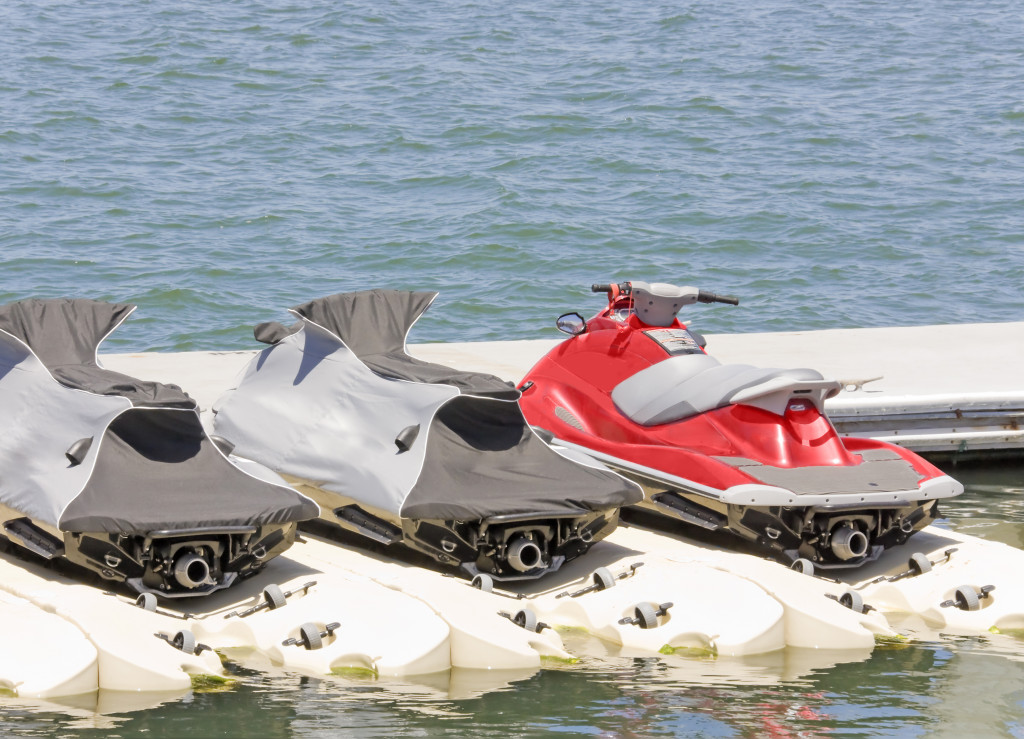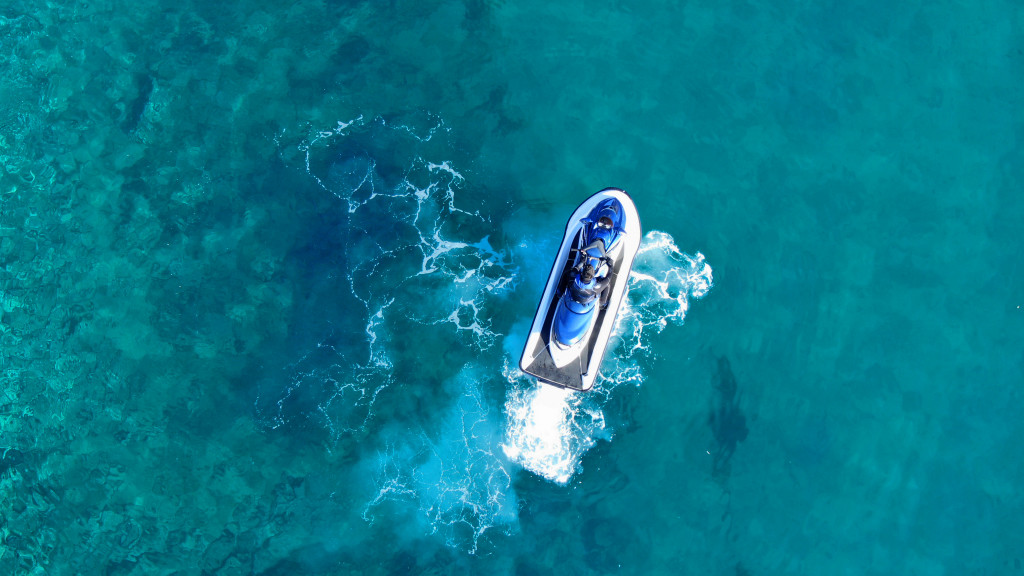- Safety features are essential to owning a jet ski and should be prioritized when selecting your model.
- Consider the fuel type – inboard engines, outboard engines, and electric jet skis require different types.
- Determine the engine size – a larger engine gives more power and performance but requires a larger gas tank.
- Understand the storage and maintenance requirements, as ownership costs can significantly add up over time.
Owning a jet ski can be an exciting and rewarding experience, but it also comes with considerations. Whether you’re a first-time owner or looking to upgrade your current ride, there are some key factors to consider before diving in.
From fuel type and engine size to storage options and safety features, proper knowledge before purchasing a jet ski is essential to ensure you get the best bang for your buck. This article will explore everything you should remember when choosing the perfect jet ski for your needs.
Jet Ski Basics
Here are some of the main components you should look for in any jet ski:
Safety Features
Owning a jet ski is a great way to enjoy the summer. Before hitting the waters, ensuring your jet ski has all the necessary safety precautions in place is essential. When selecting your jet ski, you should prioritize models that have emergency shut-off systems, shock-absorbing seating, and an impact-neutralizing hull.
You should also invest in the best GPS tracker for jet skis– preferably one that you and your family members can monitor from a smartphone app – as it will help ensure your safe return at all times. This is particularly relevant for those who may not have the specific physical strengths required for water sports – like children, the elderly, or those with disabilities. By being mindful of these safety features when owning a jet ski, you will be able to enjoy worry-free adventures on the water!
Fuel Type
When shopping for a jet ski, you should carefully consider the type of fuel it uses. Depending on location, cost, and availability, different types can have advantages and disadvantages. Inboard engines require specialized fuel such as ethyl alcohol or diesel, which is expensive to obtain at many marinas and is hard to store appropriately in large amounts.
Outboard engines are easier to maintain, use widely available gasoline, and accommodate larger tanks for long-distance trips. Additionally, some electric jet skis offer highly reliable performance but may exhibit diminished power depending on the battery pack size. All these options make fuel selection a significant factor in choosing the right jet ski for your needs, so make sure you research before making a decision!
Engine Size
Regarding owning a jet ski, engine size is an essential factor. A larger engine will offer more power and better performance on the water. A smaller engine may be suitable for non-competitive activities such as leisurely cruising around a lake.
Additionally, the size of your engine will affect the size of your gas tank: if you have a large engine, you might need to upgrade to a larger fuel capacity tank to stay on the water longer. Ultimately, having the right size of engine for your activities is essential for getting maximum enjoyment out of your new watercraft – so make sure to do your research beforehand about what would best suit your needs!
Storage Options and Maintenance Requirements

Owning an exhilarating and powerful jet ski can be an enjoyable experience, but having good storage options and maintenance requirements needs to be considered. The initial purchase is a significant investment; however, maintenance costs must be factored in over several years.
Having the right size storage space or dock can be expensive yet practical for those who have the luxury of owning a waterfront property. It is essential to store the jet ski away from open bodies of water when it’s not being used to ensure its longevity.
Flushing out any salt or dirt build-up from seawater exposure is another necessary step in preserving its good condition. Additionally, proper winterizing and maintenance warranties are also important considerations. All these measures enable jet ski owners to maintain their vessels effectively and protect their investments in the long run.
Price Range and Cost of Ownership
When deciding to own a jet ski, you must consider many cost considerations. First, one should consider the price range for their desired jet ski and make sure it fits within their budget. In addition, costs of ownership should also be considered and will vary based on the type and size of jet ski you are purchasing.
Maintenance costs must be estimated in advance as they can significantly add up over time. Furthermore, taking into account insurance costs and additional expenses like storage and transport must all be factored into the total cost of owning a jet ski. By understanding these cost factors ahead of time, you’ll have a much more enjoyable experience out on your boat since you won’t face any unpleasant financial surprises!
Performance Capabilities

As a jet ski owner, it is essential to understand the performance capabilities of your vehicle so that you can use your equipment safely and responsibly. Knowing the power output potential of your watercraft and comprehending acceleration requirements, cornering abilities, and stopping distances, will allow you to cruise confidently in all situations.
The reliable performance of your jet ski also means that you can have more enjoyable riding experiences on the open water, from calm waters to choppy ocean swells. Playing around with bays and riverways for hours or miles on end is sure to be fun, but only if you are aware of how fast the craft can go. Being vigilant and aware of your jet ski’s abilities will help you stay safe while striving to get the most out of every ride.
These are just a few factors to consider when owning a jet ski. From safety features and engine size to storage options and maintenance requirements, it’s essential to be aware of all the details before taking the plunge.

